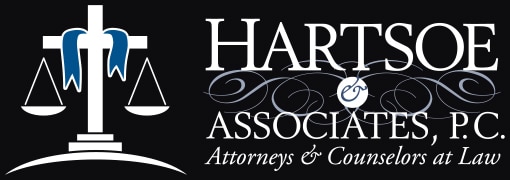Can I Get Divorced Online in North Carolina?
 Over the past couple of years, people across the country have learned to do a lot online. For years, many of us have ordered food, purchased clothing, and paid our bills online. Now, though, we may also seek medical treatment from doctors, have work-related meetings, take classes, and adopt pets. For a long time, we also “attended court” online, as the North Carolina judiciary switched to Zoom meetings for cases heard in superior and district courts in light of the COVID-19 epidemic. But can you get divorced online?
Over the past couple of years, people across the country have learned to do a lot online. For years, many of us have ordered food, purchased clothing, and paid our bills online. Now, though, we may also seek medical treatment from doctors, have work-related meetings, take classes, and adopt pets. For a long time, we also “attended court” online, as the North Carolina judiciary switched to Zoom meetings for cases heard in superior and district courts in light of the COVID-19 epidemic. But can you get divorced online?
As it turns out, in North Carolina the answer is “maybe.” While there is no statutory provision nor state-wide online website that allows you to get divorced in the comfort of your favorite easy chair, some counties are still holding divorce hearing via a Zoom-like application called “Webex.” This means you can attend your divorce hearing remotely on any device that will adequately transmit your voice and image over this secure system and end up with a judgment for absolute divorce. For the most part, however, the traditional process has largely remained intact. At the highest level, assuming this is an uncontested divorce:
- You hire a divorce lawyer (if you are smart).
- You file your petition.
- You obtain service of process either through certified mail, having the sheriff deliver the summons and complaint, or some other means accepted under North Carolina’s Rules of Civil Procedure for service of a complaint.
- You request the court to schedule a hearing and give notice of the date and time of that hearing to the other party.
- You eventually end up in a hearing in front of a judge, either virtual or in person, who signs the order for your divorce.
So the real answer is really that there is no way to handle every aspect of your divorce online. You have to file the completed, signed and properly verified complaint for divorce in person at the courthouse or via mail—they do not allow you to “file” your paperwork online or by fax.
- You must serve the summons and complaint properly, which cannot be done via electronic means at this time.
- You must sign the divorce complaint in front of a notary on a form stating under oath that everything in your complaint is true—something you can no longer do online—you have to sign in the notary’s presence in most cases.
- You CAN serve a notice of the divorce hearing via email under North Carolina’s rules.
- You may or may not be able to attend the divorce hearing online—it depends on the county’s procedure for this at the time you file.
None of this sounds easy. Is it possible to handle your own divorce without any outside help?
Legally, yes – but it is a bad idea. While one might initially think that it should be relatively simple to just get a divorce, it really isn’t. Nothing in our court system is easy. If you miss any of the above-described steps (and that list is not exhaustive), you might spend an entire day waiting for your divorce case to be called by the court only to be sent home because you missed a step or do not have the paperwork you need or the paperwork you have is not correctly completed. If you hire an experienced divorce attorney, you will not even have to show up for court in order to get your divorce completed.
To be clear, you can represent yourself in every aspect of any court case in this state—no law or rule prohibits this or requires you to hire an attorney. The deeper question is whether you should try to represent yourself. Our answer is an emphatic no.
There are myriad other reasons why being your own divorce lawyer can backfire, but today, we will focus on these two issues:
- Do I need a divorce lawyer if I have children?
- Do I need a divorce lawyer if I have properties and debts?
Do I need a Winston-Salem and Greensboro divorce lawyer if I have children?
Yes, you do. First, because child custody and child support are complex topics under the law, and while the state provides guidelines for support and written statutes regarding custody, they are complicated to apply to a specific situation and getting it wrong can cost you the custody of your children or tens of thousands of dollars in support.
Second, because the online divorce packet provided through the North Carolina Judicial Branch specifically states that court personnel cannot help with child custody or child support questions. If you think the nice people at the courthouse, including the judge, will be able to help you get things right, or will give you some grace because you do not have an attorney – you are wrong. They are prohibited from helping you with legal questions.
Can you tell me why?
- Guidelines are complicated. North Carolina uses Child Support Guidelines that refer one to one of three different worksheets used to calculate child support. It may seem easy to just fill in the blanks of the worksheet and get a number. Looks can be deceiving. Child support is based on several factors, including the gross income of both parents. Gross income can include not just wages paid by an employer, but might also include governmental benefits, Social Security payments, retirement or pension payments, or lottery winnings. Self-employed people have an entirely different issue in determining what goes on the gross income line on the child support worksheet. The wrong numbers can greatly affect the child support number you come up with. You need to know how to read tax returns and all of the worksheets and schedules, business accounting records, etc. The court also takes physical custody into consideration to determine which worksheet you should use in the first place. As such, you can benefit from working with a divorce lawyer from Hartsoe & Associates, P.C., as our extensive experience in tax law and business law can benefit you.
- When do the Child Support Guidelines not apply? Under § 50-13.4, the courts set the amount of child support based on these Guidelines, unless a party requests the court to deviate from them. There are many appellate court decisions that guide the answer to the question of possibly deviation in any particular case. It is difficult to deviate, and a party has to know why there should be a deviation and present all of the evidence required to allow the court to make the appropriate findings to cause it to approve a deviation. Our seasoned divorce attorneys can ensure that proper evidence is presented to a judge so that he or she sees such deviations are merited.
- But we agree on everything! Most people hate conflict, and just want to get things over with. You may be tempted to believe that when you have agreement with the other parent you can write things up for yourselves and just sign it—surely it must be legally binding if it is signed, right? Not really. Without a court order, both parents are equally entitled to the care and custody of their children, and if one of you decides not to abide by a private agreement, the police cannot help you regain custody. You will have to go to court, and you will be starting from scratch. A generic agreement you find on the internet will not be any better. Experienced family lawyers have seen the conflicts that arise in custody situations over and over, and can write up a consent order that anticipates and deals with those issues and that will be enforced by a court.
- You can’t just change it. It is difficult to change a child support or custody order once it is entered by the court. If you and/or your spouse make an error, you could lose out on valuable benefits – and you will have to go back to court to try and fix what you do not like. A court will only change such orders under very particular circumstances and without an attorney, it is very unlikely you will be successful in changing things. In short, your mistakes may haunt you and your children for years.
Child support and child custody are incredibly complex issues, even when both parents are in agreement. Attempting to navigate the divorce process on your own, and without legal counsel, could dramatically alter your life and the lives of your children for a very long time.
Do I need a Winston-Salem and Greensboro divorce lawyer if I have properties and debts?
In almost every possible scenario, the answer to this is “yes.” There may be an exception if, say, you own one home and have no debts outside of a mortgage, and agree to sell the home and split the proceeds – but for most people, this is not the case. Even then many issues can arise in the emotionally charged context of a divorce. Unless the two of you have no real estate and have no joint debt or other assets, you will benefit from working with an attorney.
You absolutely need a divorce lawyer if:
- You have substantial assets even if you have a premarital or post marital agreement;
- You own multiple properties, including investment properties;
- You have been married for at least 10 years;
- You own a business or shares in multiple businesses;
- You suspect your spouse is hiding assets;
- You have a trust fund;
- You have retirement accounts, including pensions, stocks; and/or
- Your assets are comingled.
This is not an exhaustive list, but it highlights some potential areas of contention when it comes to dividing your assets.
Did you know? If you transfer money to your spouse from a 401(k), you can be penalized 10% on the payout and pay tax on the distribution at your current tax rate, costing you thousands. If you use a qualified domestic relations order (QDRO) to transfer the money, however, you can avoid the penalty and the tax.
Did you also know… that it does not matter whose name is on an asset or a debt – if it was obtained during marriage it belongs to both of you when it comes time to divide assets in divorce. This includes retirement accounts, business interests, credit card debts, etc. There are many answers you need when dividing up what might be a lifetime of assets meant to carry you through retirement—most will not even know what the questions are.
What about dividing debts?
If you are part of the 77 percent of American households carrying some level of debt, you should seek legal counsel for your divorce. Debt may be divisible, provided it is marital debt. Such debts can include, but are not limited to:
- Credit card debts
- Student loans
- Mortgages
- Back taxes
- Car loans
- Medical debts
The division of debts, much like the division of assets, can be complicated. Things get a lot more complicated when debt is associated with a major asset, like a house. In most cases, a couple buys a house after marriage, making the house a marital asset, regardless of whether it was deeded in just one of your names, or both. Typically, both parties would be obligated to pay the mortgage. If you divorce, nothing changes—both are still obligated to pay the debt, but usually only one of you is living in the house. The only way to get the other person off of the mortgage is to refinance the mortgage into one name only, or to sell it and pay off the mortgage entirely. Remaining on the mortgage will affect your ability to buy another property or even a car, as that debt is still listed as yours. This is just the beginning.
If one party owned the home in their name alone prior to the marriage, and left the home in just that person’s name, but used the income of the parties (just one or both) to pay the mortgage during the marriage, those payments are creating a marital “component” in the ownership of the house that is subject to division between the parties upon divorce. This is true even if the owner is the only one who used their income to make the payments.
These are the types of issues that a Winston-Salem and Greensboro divorce lawyer will help you address.
THE HARTSOE ADVANTAGE
There are other very experienced family law attorneys in our area. Hartsoe & Associates offers what most of them cannot—a firm with experience and important knowledge in other very important areas of the law. We bring years of experience in the areas of tax debt resolution, business formation and litigation, Social Security disability law, bankruptcy, serious personal injury, and more. We are equipped to deal with the most complicated divorce cases, no matter how much money is involved.
At Hartsoe & Associates, P.C., we have been helping individuals, business owners, and families reach the best possible outcome for their needs. To schedule a consultation with an experienced lawyer, please call 336-725-1985 or fill out our contact form. We maintain offices in Winston-Salem and Greensboro and serve clients in the Piedmont Triad and the surrounding regions.

For Tony, the law is a calling, not a job. He is a mountain boy, with simple, straightforward values. Tony loves what he does, and loves to help people through some of the toughest moments anyone will ever face. Learn More
